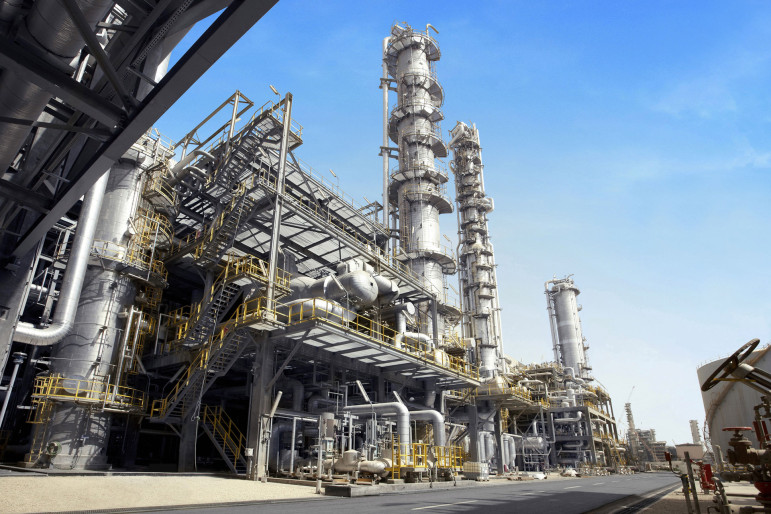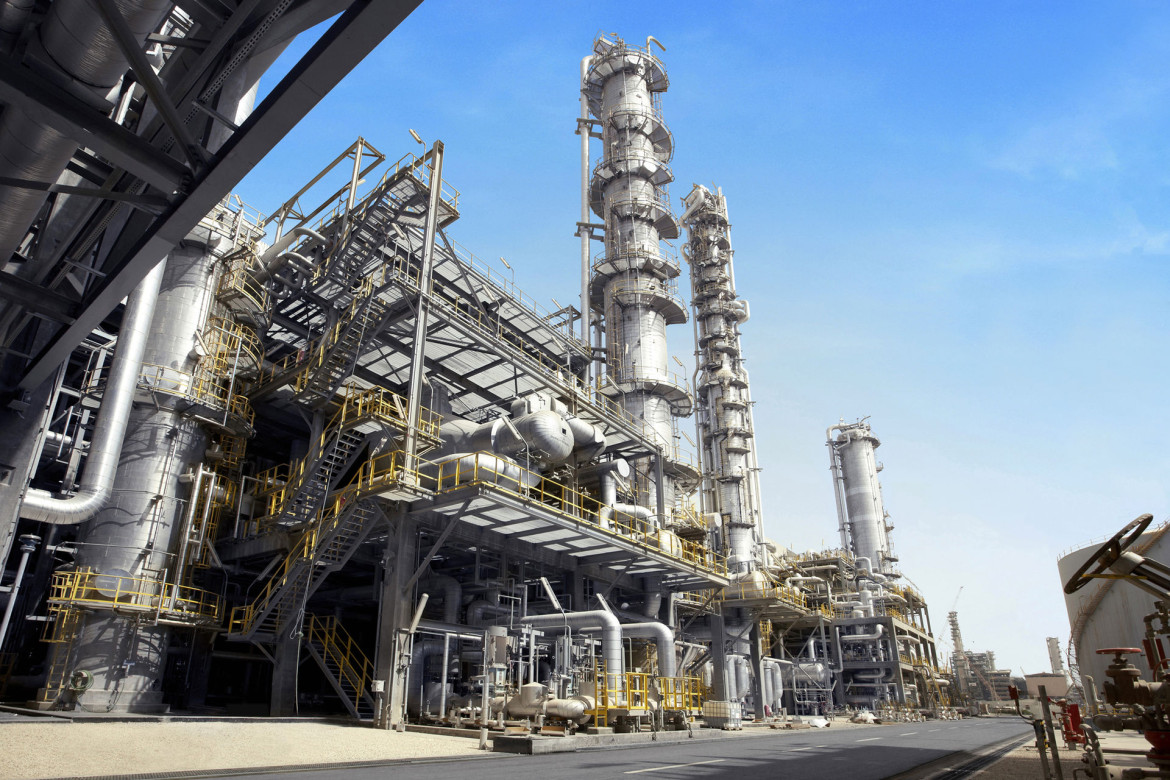
Secl/Wikimedia Commons
Petrochemical plants like this one in Saudi Arabia use \’cracking\’ processes to change natural gas products such as propane and ethane into other compunds.
We have a shared Google Doc at Inside Energy where we post questions we have for each other. I saw this one from our Executive Editor, Alisa Barba:
What is a ‘crack spread?’
followed immediately by this one from our Data Journalist, Jordan Wirfs-Brock:
What are “ethylene crackers”?
Well, it turns out neither of these terms refer to food, as appetizing as they may sound.
I know, minds blown.
Let’s explain the latter first. An ethylene cracker is a large, industrial plant, where the natural gas component ethane is “cracked” into ethylene, which is the root compound for many types of adhesives, plastics and resin. The western Pennsylvania public radio program “The Allegheny Front” wrote up a pretty thorough explanation of what happens in these cracking plants:
It does (cracking) this by heating the ethane up so hot that it breaks apart the molecular bonds holding it together to form ethylene. Crackers often feed other nearby plants that create more refined products further “downstream.”
The Allegheny Front calls the plant an “ethane cracker,” since that’s the compound which starts the process.
Snooping around online, it seems that “ethane cracker” is the preferred term, rather than ethylene cracker.
Shell Oil actually is proposing to build a new ethane cracker in Pennsylvania, which State Impact Pennsylvania says could be a significant new source of air pollution for the state.
As for ‘crack spread,’ it’s a financial term. The Environmental Information Agency defines it as “the difference between the purchase price of crude oil and the selling price of finished products, such as gasoline and distillate fuel, that a refinery produces from the crude oil.”
So, essentially, the crack spread is how much profit a company can expect to make by cracking the gases and liquids they start with into other gases, liquids, and solids.
I do find cracking to be a peculiar term to use when describing something that happens to liquids and gases. That’s probably why I’m not a chemist.








